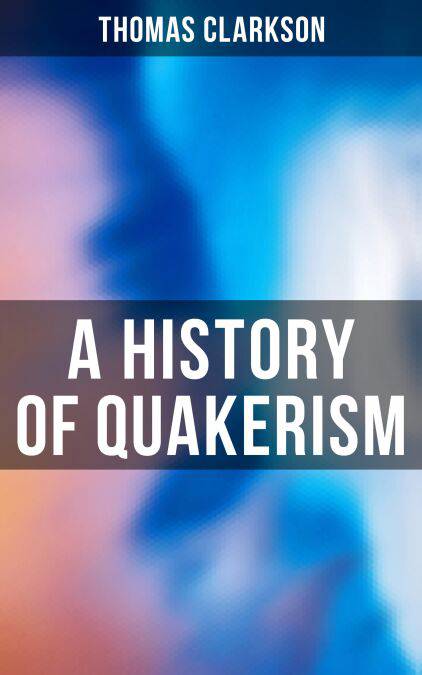
Bedankt voor het vertrouwen het afgelopen jaar! Om jou te bedanken bieden we GRATIS verzending (in België) aan op alles gedurende de hele maand januari.
- Afhalen na 1 uur in een winkel met voorraad
- In januari gratis thuislevering in België
- Ruim aanbod met 7 miljoen producten
Bedankt voor het vertrouwen het afgelopen jaar! Om jou te bedanken bieden we GRATIS verzending (in België) aan op alles gedurende de hele maand januari.
- Afhalen na 1 uur in een winkel met voorraad
- In januari gratis thuislevering in België
- Ruim aanbod met 7 miljoen producten
Zoeken
A History of Quakerism E-BOOK
Education and Discipline, Social Manners, Civil and Political Economy, Religious Principles…
Thomas Clarkson
E-book | Engels
€ 1,99
+ 1 punten
Omschrijving
Thomas Clarkson's 'A History of Quakerism' is a meticulously researched and comprehensive examination of the origins, development, and influence of the Quaker movement. Clarkson delves into the theological principles, social practices, and prominent figures that have shaped Quakerism throughout history, providing readers with a deep understanding of this religious tradition. His narrative is marked by a clear, engaging writing style that makes complex ideas accessible to a wide audience, making this book an invaluable resource for scholars and students of religious studies alike. Clarkson skillfully contextualizes Quakerism within the broader religious landscape, drawing connections to other religious movements and highlighting its unique contributions to global spirituality. By exploring the evolution of Quaker beliefs and practices, Clarkson sheds light on the enduring impact of this religious tradition on society and culture. As a renowned abolitionist and advocate for social justice, Thomas Clarkson's interest in Quakerism is rooted in his own commitment to humanitarian causes. His thorough examination of Quaker history reflects his dedication to understanding the role of religion in shaping ethical principles and promoting social change. Clarkson's expertise in the study of religious movements is evident throughout the book, as he draws insightful parallels between Quakerism and other religious traditions, offering readers a nuanced perspective on the significance of Quaker beliefs in the modern world. I highly recommend 'A History of Quakerism' to anyone interested in the intersection of religion, ethics, and social justice. Clarkson's insightful analysis and engaging writing style make this book a compelling read for both scholars and general readers looking to deepen their understanding of Quakerism and its lasting legacy in global society.
Specificaties
Betrokkenen
- Auteur(s):
- Uitgeverij:
Inhoud
- Aantal bladzijden:
- 623
- Taal:
- Engels
Eigenschappen
- Productcode (EAN):
- 4064066393656
- Verschijningsdatum:
- 16/12/2020
- Uitvoering:
- E-book
- Beveiligd met:
- Digital watermarking
- Formaat:
- ePub

Alleen bij Standaard Boekhandel
+ 1 punten op je klantenkaart van Standaard Boekhandel
Beoordelingen
We publiceren alleen reviews die voldoen aan de voorwaarden voor reviews. Bekijk onze voorwaarden voor reviews.









